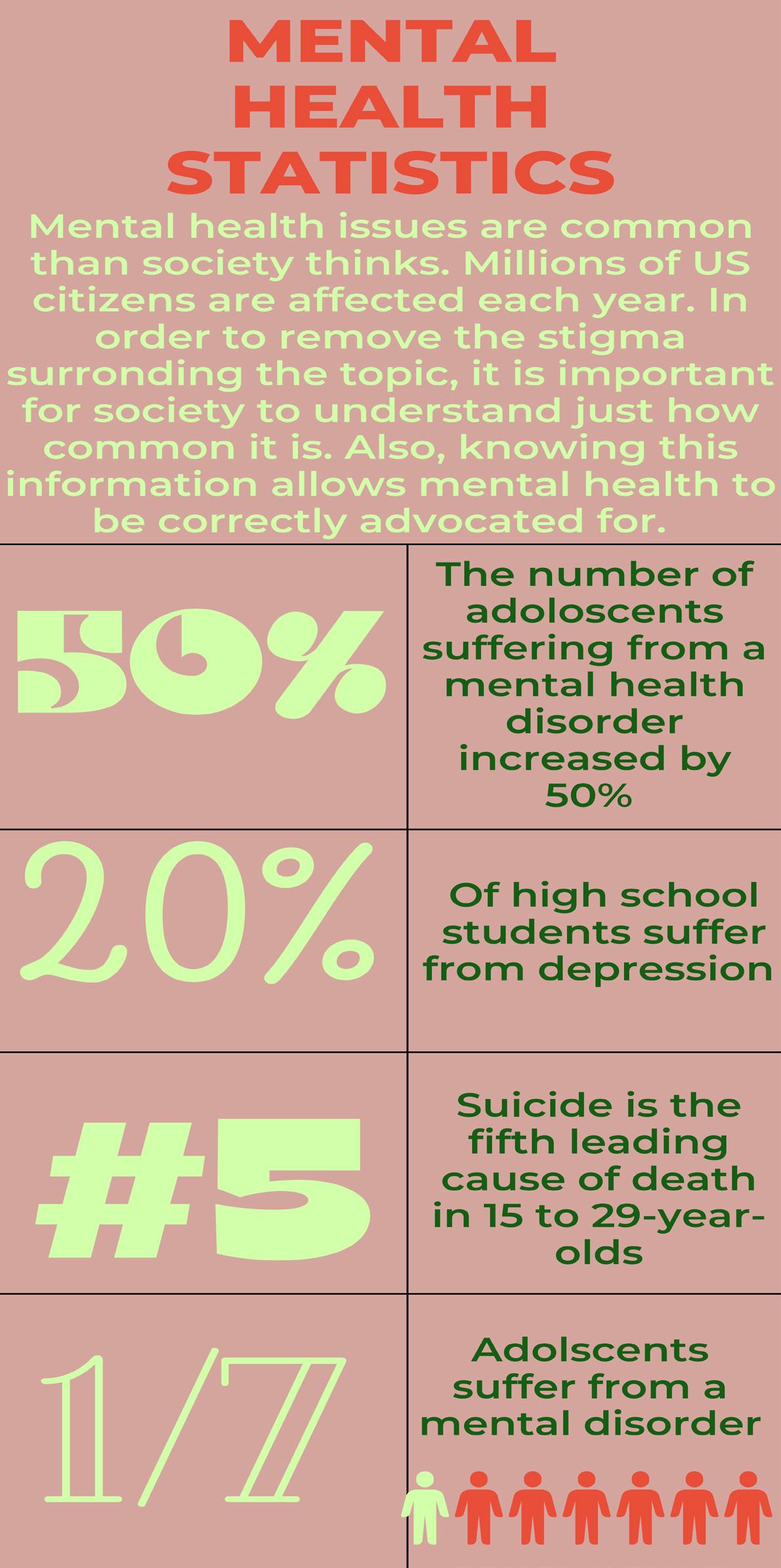
1 minute read
Being aware of mental health issues makes everyone
Adalyn Law & Staff Writers
The topic of mental health is being heard more in daily conversations. Although it is becoming more accepted to talk about, it once was not. During the Middle Ages, mental disorders were seen as signs of demonic possession and supernatural forces. Asylums were built where patients who were deemed mentally ill underwent cruel treatments. While society has come a long way from the past, there is still a stigma surrounding the topic, thus making students afraid to talk about it.
Advertisement
Society tends not to view mental illness as a real medical condition. When people think of mental health, they associate people suffering with being weak. Mental health issues come from a number of contributing factors such as life experiences, biological factors, and family history with disorders.

“Where [in our larger society] for a long time there’s been this misconception that if you have issues with your mental health, then there must be something ‘wrong with you,’’’ Ms. Papini, counselor and Marietta Student Life Center (MSLC) coordinator, said.
The definition of Stigma is a negative attitude or idea about either a mental, physical, or social feature of a person or group. The stigma surrounding mental health has come from a lack of understanding and even fear. Students cannot openly discuss mental health with peers without first understanding it.


“There’s this ‘I’m okay so why aren’t you okay? We went through the same thing’ mentality. What we forget is everyone’s experience in life is unique to them,” Papini said.
Mental health affects how a person thinks, feels, and acts as well as how they handle stress and interact with others. This applies to students as statistics show that from ages 10 to 19, one in seven adolescents suffer from a mental disorder, leading to depression, anxiety, and behavioral problems. Among 15 to 29-year-olds, suicide is the fifth leading cause of death.

Due to the increase in how many teens suffer from mental illness, the MSLC has worked on providing help to students seeking it. Recently, the school participated in Speak Life week where the goal was to spread knowledge and awareness of mental health.
“I think the school does a good job with helping people with mental health issues and those who seek help as there has been a lot more talk about the topic and acceptance around the school,” Kathryn Tillis (12) said.
While mental illness cannot be seen externally, some common signs of anxiety include restlessness, fatigue, difficulty concentrating, irritability, and distress in social settings. For depression, watch out for signs of avoiding activities once loved, significant change in weight, fatigue, and difficulty concentrating.
By taking the appropriate steps to learn this information, society can more comfortably talk about mental health issues.









